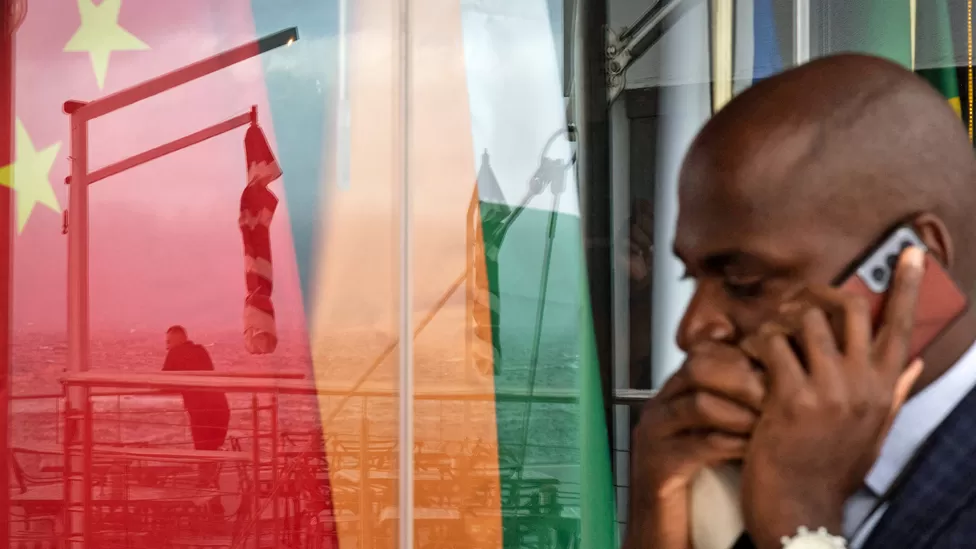How China’s and Russia’s clout is growing in Africa

Africa’s wealthiest square mile hosts a big international summit this week with pride, relief, and a hint of unease.
Taking place in Sandton, an amorphous bloc of countries united by their desire to challenge perceived Western dominance in global affairs, the Brics group is an ambitious but amorphous group of countries (Brazil, Russia, India, China, and South Africa). Sandton is a glitzy banking district on the outskirts of Johannesburg’s increasingly dilapidated city. Several other nations are lining up to join.
As a result of President Vladimir Putin’s recent decision to stay away from the Brics summit, there is currently a sense of relief in South Africa regarding Brics.
He would have forced South Africa to clarify whether it would arrest Russia’s leader for alleged war crimes in Ukraine if he insisted on coming.
In spite of that awkward challenge, South African officials are now relishing their role as host – flooding journalists’ inboxes with emails about Brics breakfast meetings, trade fairs, township dialogues, etc.
To some observers, this unusual level of official enthusiasm illustrates how far and fast this country appears to be moving away from the West, firmly into China’s and, to a lesser extent, Russia’s orbits. In a news conference, a Russian journalist leaned over to me and said, “You can keep your human rights paradise [in the West]. We are remaking the world.”
Although Brics are still in their infancy, they are generating a real sense of energy and excitement, at least in some quarters.
According to a colleague who attended a foreign policy workshop hosted by the South African government, China is the future, and the West is in decline.
This is where South Africa’s unease comes into play.
A wealthy businessman, Cyril Ramaphosa, will be acutely aware that if the country is to avoid a spiralling crisis, it desperately needs more foreign investment, hit hard by Covid and struggling with the highest levels of unemployment and inequality in the world.
There is no answer in Russia. South Africa has almost no trading relationship with it.
Although China is an increasingly important player in the region, it is still overshadowed by long-standing trade with, and investment from, the European Union (EU).
At a time of profound economic uncertainty, why would South Africa jeopardize those key Western relationships?
Part of the answer lies within the country’s increasingly weary and erratic governing party.
The African National Congress (ANC) is struggling to rid itself of infighting, corruption, and administrative chaos after three decades in power.
A muddled grab-bag of responses has been offered by South Africa’s government in response to the Ukrainian conflict – first condemning the invasion, then refusing to condemn it, then blaming NATO, praising Mr Putin, offering itself as a peace broker, hosting Russian naval exercises, rushing to explain itself to Washington, and casually repeating Kremlin propaganda.
Additionally, the United States still claims that South Africa supplied Russia with arms last year.
No doubt, President Ramaphosa is deeply concerned about Russia’s invasion and wants to portray himself as an advocate for a more multipolar world.
In spite of this, many in his government and party undermine that stance, often citing nostalgia for Moscow’s support during the anti-apartheid struggle and more general suspicion of US foreign policy.
All sides in the conflict have been irritated by the haphazard messaging, which has made South Africa appear weak and indecisive.
